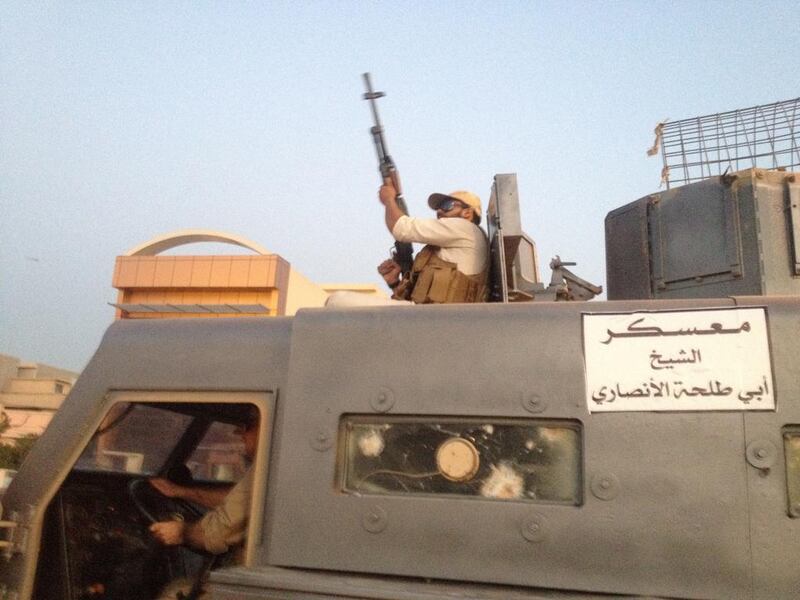Mosul is surrounded. Besieged in an increasingly narrow area, ISIL’s fighters in Iraq are being squeezed, street by street, out of existence. The Iraqi chapter of ISIL’s “caliphate” is coming to an end.
Where will ISIL’s fighters go? As their caliphate crumbles, many will fight to the death; others will be captured by the Iraqi army; and still others will head for Syria, where ISIL still controls territory.
But there will be some who will find their way back home. ISIL’s ranks, originally staffed by Iraqis, have been swelled by foreign fighters, some of whom are women and children. Arabs, Africans, Europeans and Asians have all made their way to Syria and Iraq, believing in ISIL’s cause, or else been so brainwashed by ISIL’s propaganda inside those countries that they willingly joined the group. After their last stronghold falls, will they attempt to return to their old homes?
This is a question governments in the Middle East and Europe have been grappling with for some time, but it takes on an added urgency in light of the coming end of ISIL’s territory in Iraq.
After the attacks of September 11, 2001, and the invasion of Afghanistan, many Al Qaeda supporters simply vanished, re-entering their old lives or waiting for another chance to wage war. Many proved very hard to track down. The same will be true for ISIL’s supporters.
European countries are torn, unsure of how to approach the topic. Cumulatively, hundreds of fighters are believed to have returned to European countries; only a handful have faced prosecution.
The two countries that have sent the most fighters per head to ISIL territory, Belgium and Denmark, have markedly different approaches.
Belgium has spent considerable resources tracking the movements of men who leave for Syria, intercepting their phone calls and emails, and then seeking to put them before a court on their return.
Denmark, on the other hand, has adopted methods from its crime-prevention policing, offering returnees to attend deradicalisation programmes and giving them access to mentorship.
But in both cases, the security services are aware that whatever they do matters not only to the specific case in front of them, but also to what will happen to other citizens watching from abroad.
A too-lenient approach could make jihadis believe returning carries no cost, making them either stay and fight longer, or return to preach and plot.
Too harsh a response, on the other hand, means stranding citizens who may want a way back inside ISIL territory. It also means the potential for a failed court-case of a returnee, setting a bad precedent, or placing large numbers of young men in prisons, where they may radicalise others. There will also be others who were considering going to fight who, seeing the harsh response they might face, could stay inside the country and plan attacks. These are hard questions.
If that is the case for young men who have actually been to war zones, what about young women, who joined to become “jihadi brides”? What about children who were radicalised while there? The grey area of the law is vast on this topic.
At root, it is a question of the law, of morality and of politics.
Of the law, because it is devilishly hard to apply the standards of proof necessary in a courtroom thousands of miles away from the scene of the crime. In many cases, prosecutors only have social media posts and intelligence pinpointing fighters in certain locations, barely enough to merit a conviction.
Of morality, because there’s a question of what to do about those who have genuinely repented, of those, like children, who did not have agency, and of what rights to be rehabilitated citizens might have.
Of politics because all of this is being conducted in the glare of the media. Publics are extremely unsympathetic to returnees. It is not unlike the feeling many have on learning those imprisoned have access to television or video-games consoles.
In Syria and Iraq, returnees may be returning to their former towns or villages, where neighbours know who they are and what they did.
In Arab and European countries, Muslim communities have become profoundly unsympathetic, practically excommunicating ex-fighters. Among the broader public, at a time of rebuilding in the Arab world, and a time of severe austerity in Europe, there is no public mood for limited public money being put into rehabilitating or supporting those who, after all, made bad choices all on their own. When people are asked the question, their answers usually sidestep the tricky areas of morality, law and politics, appointing to locking up returnees, or simply depriving them of citizenship and leaving them there.
None are satisfactory answers. At a time of vast ungoverned spaces around the world and ISIL affiliates that still control territory, leaving ex-fighters, embittered, angry and with military training, roaming around battlefields is a recipe for disaster. However difficult it is, ultimately it is a question of collective security for countries to allow ex-fighters who genuinely repent, a road, however hard and long, that leads them out of Mosul.
falyafai@thenational.ae
On Twitter: @FaisalAlYafai





